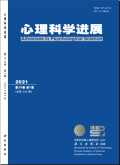心理科学进展2024,Vol.32Issue(8):1328-1341,14.DOI:10.3724/SP.J.1042.2024.01328
新冠疫情下的儿童青少年健康危险行为:基于家庭风险的视角
Health risk behaviors among children and adolescents during the COVID-19 pandemic:A perspective from family risk
摘要
Abstract
The COVID-19 pandemic led to a significant increase in health risk behaviors among children and adolescents.Moreover,these impacts have persisted even as life gradually has returned to normal.The changes in health risk behaviors among children and adolescents during the COVID-19 pandemic were primarily observed in the form of excessive screen time,reduced physical activity,increased sedentary behaviors,limited variety in food,irregular eating patterns,staying up late and getting up even later.This study aims to establish a family risk framework to elucidate the mechanisms driving these changes in health risk behaviors.This framework can be integrated with life history theory to provide insights into the lasting effects of these behaviors in the post-pandemic era.Future research should focus on long-term tracking of the developmental trajectories of health risk behaviors among children and adolescents.Moreover,there is a critical need for more empirical research to explore the complex interplay between family-related risk factors,life history theory,and health risk behaviors in this demographic.These research efforts will provide universal approaches for addressing children and adolescents'health issues in situations such as major unforeseen events and natural disasters.关键词
新冠疫情/健康危险行为/儿童青少年/家庭风险/生命史理论Key words
COVID-19/health risk behaviors/children and adolescents/family risk/life history theory分类
医药卫生引用本文复制引用
周嘉雯,王明怡..新冠疫情下的儿童青少年健康危险行为:基于家庭风险的视角[J].心理科学进展,2024,32(8):1328-1341,14.基金项目
2022年北京市社会科学基金规划项目(22JYB009). (22JYB009)

